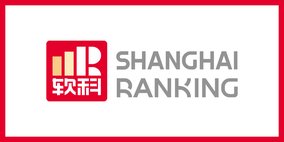- Type of qualification
- Master's degree
- Level of study
-
Postgraduate study
Once you’ve graduated with a bachelor’s degree – or have equal experience – you can study at the postgraduate level. Doctoral qualifications require additional entry requirements.
NZQF level 9Our courses follow the New Zealand Qualification Framework (NZQF) levels.
- Time to complete
-
15-18 months full-time (180 credits)Part-time available
- Where you can study
-
Auckland campusDistance and online
-
International students
International students are not New Zealand citizens or residents.
- Open to international students on campus in New Zealand
Study a Master of Professional Accountancy – MPAcc
Whatever your accountancy career ambitions are, this qualification will help you get there. The Master of Professional Accountancy is open to graduates with a bachelor’s degree in any discipline.
Open the door to professional organisations
Completion allows you to join key professional accountancy organisations in Australia and New Zealand.
The qualification meets the academic requirements of Chartered Accountants Australia and New Zealand (CAANZ), Certified Practising Accountants (CPA) Australia and the Association of Chartered Certified Accountants (ACCA).
Elevate your career
Completing this qualification shows a commitment to gaining the business capabilities employers are looking for. It will build on your previous study and/or practical work experience. You'll gain an excellent understanding of accountancy principles and practical applications.
Insights
- The 2021 Student Experience Survey results for this qualification found that 94% of students on this qualification found the teaching staff to be helpful and approachable, 81% felt that assessment tasks challenged them to learn, and 88% highlighted that the qualification has given them excellent “confidence to learn independently”.
- The 2020 Graduate Destination Survey results for this qualification found that 80% of graduates are in employment and 40% have continued in further study. The most common job title for graduated students was “Accountant”. Respondents indicated that 50% were earning above the New Zealand median national salary.
- Between 2018 and 2021 the average number of students enrolled in the qualification was 131 (headcount) and across the whole qualification, 96% of courses were successfully completed during 2020.
- The QS World University Ranking by Subject ranks Massey in the top 250 universities worldwide in this subject area.
A MPAcc is a good fit if you:
- have an undergraduate qualification in any subject
- want to increase your in-depth knowledge of accountancy
- would like to take the next step in your career.
Entry requirements
Entry requirements
Admission to Massey
All students must meet university entrance requirements to be admitted to the University.
Specific requirements
To enter the Master of Professional Accountancy you will have been awarded or qualified for an undergraduate degree achieving at least a B grade average in the highest two levels of the majoring subject.
You will need to provide copies of all official academic transcripts for studies taken at all universities other than Massey University.
English language requirements
To study this qualification you must meet Massey University's English language standards.
Time limits for Honours, Distinction and Merit
Where your qualification is completed within the stated time limit and to a high standard, you may be able to graduate with Distinction or Merit.
- Look for information under ‘Student Progression’ in the General Regulations for Postgraduate Degrees, Postgraduate Diplomas and Postgraduate Certificates.
- Contact us through the ‘Get advice’ button on this page if you have any questions.
Prior learning, credit and exemptions
For information on prior learning, exemptions and transfer of credit or other questions:
- review the Recognition of Prior Learning regulations
- contact us through the Get advice button on this page.
English language skills
If you need help with your English language skills before you start university, see our English for Academic Purposes (EAP) courses.
Maximum time limits for completion
There are maximum time limits to complete some undergraduate and all postgraduate qualifications. If you do not complete within the maximum time, you may be required to re-apply for the qualification if you wish to continue your studies.
Official regulations
To understand what you need to study and must complete to graduate read the official rules and regulations for this qualification.
You should read these together with all other relevant Statutes and Regulations of the University including the General Regulations for Postgraduate Degrees, Postgraduate Diplomas, and Postgraduate Certificates.
Returning students
For returning students, there may be changes to the majors and minors available and the courses you need to take. Go to the section called ‘Transitional Provisions’ in the Regulations to find out more.
In some cases the qualification or specialisation you enrolled in may no longer be taking new enrolments, so may not appear on these web pages. To find information on the regulations for these qualifications go to the Massey University Calendar.
Please contact us through the Get advice button on this page if you have any questions.
Structure of the Master of Professional Accountancy
Structure of the Master of Professional Accountancy
If you study full-time, you’ll take 120 credits per year or 60 credits per semester.
The Master of Professional Accountancy is a parts-based qualification. That means you must complete the first part, before moving to the second.
In order to progress from Part One to Part Two, you must achieve a minimum B- grade average in Part One of the qualification.
Courses and specialisations
Courses and specialisations
Key terms
- Courses
- Each qualification has its own specific set of courses. Some universities call these papers. You enrol in courses after you get accepted into Massey.
- Course code
- Each course is numbered using 6 digits. The fourth number shows the level of the course. For example, in course 219206, the fourth number is a 2, so it is a 200-level course (usually studied in the second year of full-time study).
- Credits
- Each course is worth a number of credits. You combine courses (credits) to meet the total number of credits needed for your qualification.
- Specialisations
- Some qualifications let you choose what subject you'd like to specialise in. Your major or endorsement is what you will take the majority of your courses in.
Credit summary
180 credits
- Part A compulsory courses – 120 credits
- Part B compulsory courses – 60 credits
There are regulations around completion of Part One before progressing to Part Two.
Course planning key
- Prerequisites
- Courses that need to be completed before moving onto a course at the next level. For example, a lot of 200-level courses have 100-level prerequisite courses.
- Corequisites
- Courses that must be completed at the same time as another course are known as corequisite courses.
- Restrictions
- Some courses are restricted against each other because their content is similar. This means you can only choose one of the offered courses to study and credit to your qualification.
Part One (Choose 120 credits from)
Course code: 110701 Accounting Systems 15 credits
Accounting systems and the role of accountants in a systems environment.
View full course detailsCourse code: 110702 Financial Accounting 15 credits
A comprehensive study of financial reporting, including current New Zealand GAAP and recognition of revenue, assets and liabilities.
View full course detailsCourse code: 110703 Management Accounting and Decision Making 15 credits
Cost and management accounting in the business environment.
View full course detailsCourse code: 125701 Quantitative Methods for Accounting and Finance 15 credits
A study of statistical and econometric techniques allowing students to carry out appropriate empirical research in the areas of accounting and finance.
View full course detailsCourse code: 125702 Financial Management 15 credits
An introduction into the theory and practice of financial management decision making. Students develop and apply financial management techniques to solve business problems.
View full course detailsCourse code: 125803 Corporate Finance 15 credits
A study of financial management decisions within a corporate setting. Students examine how financial decisions impact on firm value.
View full course detailsCourse code: 155771 Law of Business 15 credits
The legal system and the law of business organisations and its relevance to the accounting and finance profession.
View full course detailsCourse code: 178771 Economics 15 credits
A study of macroeconomic and microeconomic theory in the context of a modern open economy.
View full course detailsPart Two (Choose 60 credits from)
Course code: 110804 Advanced Financial Accounting and Reporting 15 credits
Theory and application of current financial reporting standards in contemporary business.
View full course detailsCourse code: 110805 Advanced Strategic Management Accounting 15 credits
Strategic applications of cost and management accounting tools and techniques.
View full course detailsCourse code: 110806 Auditing and Assurance 15 credits
The role of external auditing and assurance including the application of professional, ethical and technical requirements, and current auditing research issues.
View full course detailsCourse code: 110807 Tax 15 credits
A comprehensive examination of key aspects of New Zealand's tax regime from a domestic and international perspective.
View full course detailsFees and scholarships
Fees and scholarships
Course fees
You can view fees for the courses that make up your qualification on the course details pages.
Student loans (StudyLink) and Fees Free scheme
You may be eligible for a student loan to help towards paying your fees.
The New Zealand Government offers fees-free tertiary study for eligible domestic students. Find out more about the scheme, including how much could be covered and your eligibility on the Inland Revenue website.
Scholarship and award opportunities
Find more scholarships and awardsFees disclaimer
This information is for estimation purposes only. Actual fees payable will be finalised on confirmation of enrolment. Unless otherwise stated, all fees shown are quoted in New Zealand dollars and include Goods and Services Tax, if any. Before relying on any information on these pages you should also read the University's Disclaimer Notice.
Careers and job opportunities
Careers and job opportunities
Sought after by employers
International trends are for employers to reward postgraduate study well, especially in larger enterprises. The skills you learn are increasingly recognised as setting you apart from other potential employees.
Earn more
A 2017 Ministry of Education publication "The post-study earnings and destinations of young domestic graduates", found that in New Zealand:
- young master’s graduates earn more than 1.5 times more than the national median (5 years after study)
- earnings and employment rates increase with the level of qualification completed
- five years after completion, the median earnings of young master’s graduates are 15% higher than for those with a bachelor’s degree.
What our students say
“I was delighted that I got the chance to complete Massey’s MPAF programme with its first class technology and very experienced professors.”

“I am definitely confident in saying that MPAF has laid very solid foundations for me to step into the workforce.”

Accreditations and rankings

Association to Advance Collegiate Schools of Business (AACSB)
Massey Business School is rated in the top 5% of global business colleges by AACSB International.
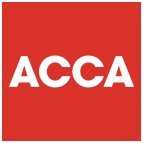
Association of Chartered Certified Accountants (ACCA)
Massey's accountancy qualifications are internationally accredited by the UK's Association of Chartered Certified Accountants (ACCA).
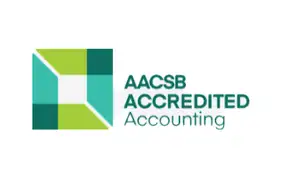
Association to Advance Collegiate Schools of Business (AACSB) Accountancy accreditation
Massey's School of Accountancy, Economics and Finance is one of only two institutions in New Zealand and Australia, and one of 12 outside the United States, to be accredited by the Association to Advance Collegiate Schools of Business (AACSB) for its undergraduate, master's and doctoral degrees.
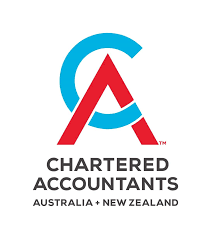
Chartered Accountants Australia and New Zealand (CA ANZ)
Massey's accountancy qualifications have accreditation from Chartered Accountants Australia and New Zealand. Representing more than 120,000 members, CA ANZ is committed to upholding ethical standards, delivering world-class member services, educating and advocating for the public good.
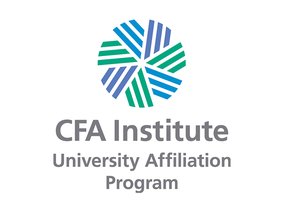
Chartered Financial Analysts Institute (CFA)
Massey University is part of the Chartered Financial Analysts Institute's (CFA's) University Affiliation Programme.
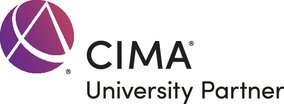
Chartered Institute of Management Accountants (CIMA)
Accountancy at Massey University is accredited by the Chartered Institute of Management Accountants (CIMA).
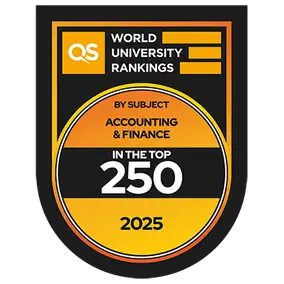
QS Ranking – Accounting and Finance
Massey is ranked by QS (Quacquarelli Symonds) as one of the top 250 universities for accounting and finance.
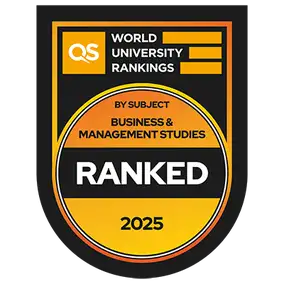
QS Ranking - Business Management Studies
Massey University is ranked by QS (Quacquarelli Symonds) as one of the top 500 universities for business and management.
Related study options
Accountancy – Bachelor of Business
Become an accountancy specialist with the skills and knowledge to succeed in the world of business.
Accountancy – Master of Business Studies
The Master of Business Studies (Accountancy) will give you the business and accountancy skills to take your career to the next level.
Accounting – Graduate Diploma in Business Studies
Keen for a career in accountancy? By studying Massey’s Graduate Diploma in Business Studies (Accounting) you can change the direction of your career.
Bachelor of Accountancy – BAcc
Keen to become a professional accountant? New Zealand’s only Bachelor of Accountancy will lead you to an accountancy career, and membership of a professional accounting organisation.
Master of Professional Accountancy (Chartered Accountant) – MPAcc(CA)
Unleash your potential and start your journey to become a Chartered Accountant. You will gain an in depth understanding of accountancy principles and practical applications, plus be one step closer to achieving full Chartered Accountant status with the integration of the CA Program.
Professional Accountancy (Chartered Accountant) – Postgraduate Diploma in Business
This qualification seamlessly integrates the CA Program, guiding you to Chartered Accountancy. Further develop your understanding of accountancy principles and practical applications, and elevate your accountancy career to new heights.
